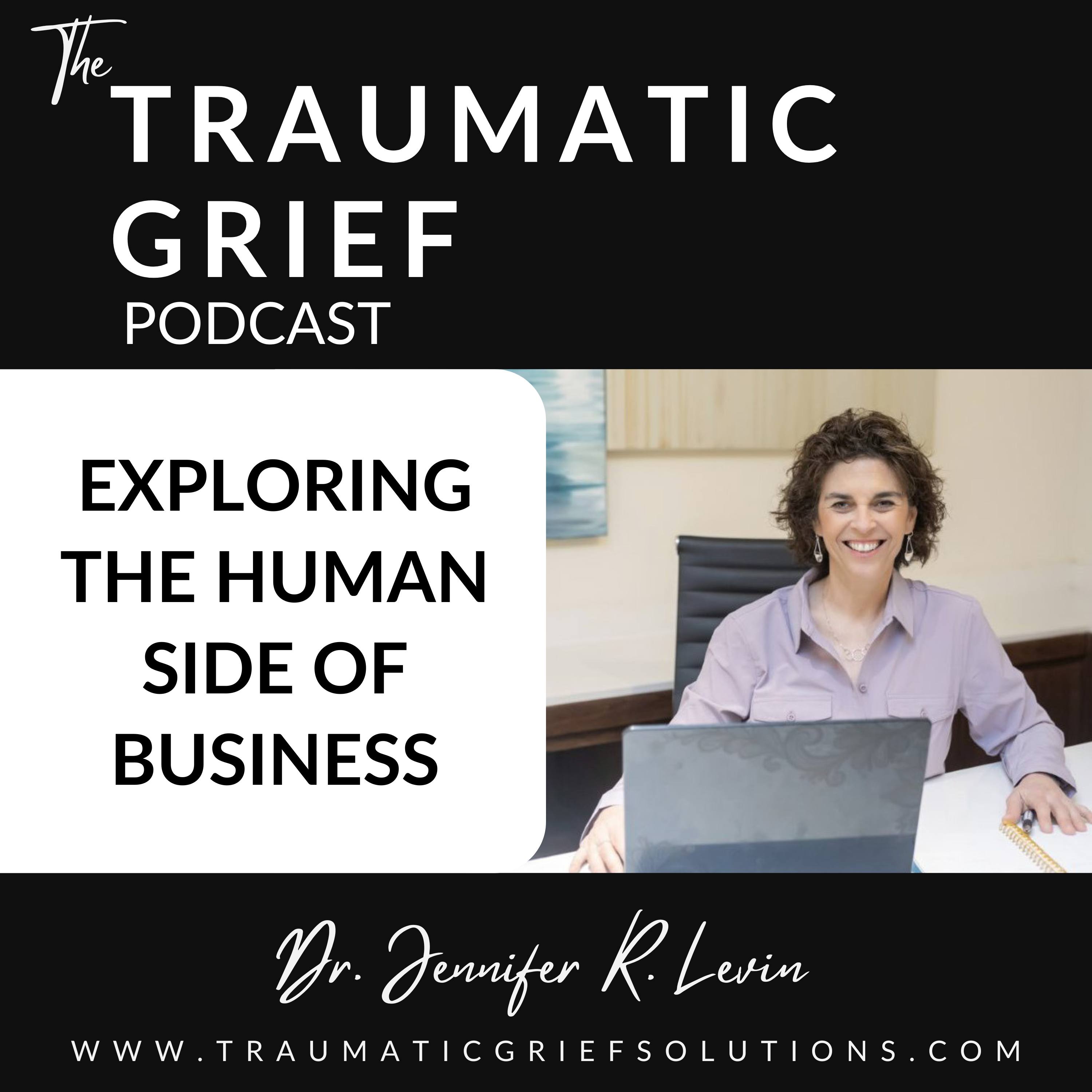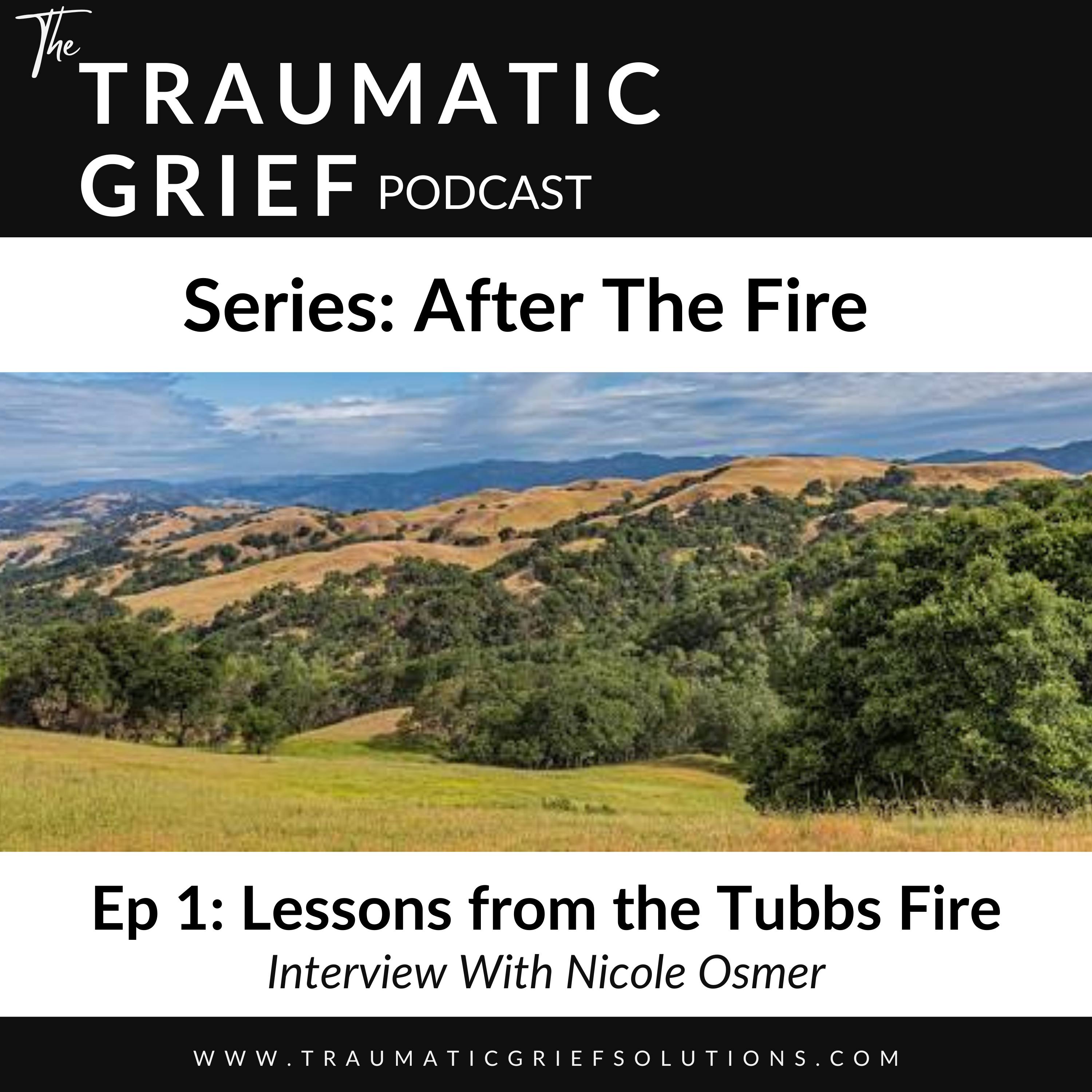The Traumatic Grief Podcast: Exploring the Human Side of Business

The Traumatic Grief Podcast: Exploring the Human Side of Business
Podcast Description
This podcast dives into the real human side of workplace grief and trauma. My guests share their personal stories—how they responded to sudden loss, the impact on their teams and organizations, and the strategies they used to prepare for unforeseen crises. Whether you're a business owner, executive, or HR professional, you’ll walk away with valuable insights on how to build a workplace that is grief- and trauma-informed to support your employees and business in the face of unexpected loss.
Podcast Insights
Content Themes
The podcast explores themes of workplace grief, trauma management, and resilience, with episodes like Lessons from the Tubbs Fire detailing personal stories of loss and recovery, emphasizing necessary strategies for creating trauma-informed workplaces, and providing insights on leadership during crises.

This podcast dives into the real human side of workplace grief and trauma. My guests share their personal stories—how they responded to sudden loss, the impact on their teams and organizations, and the strategies they used to prepare for unforeseen crises. Whether you’re a business owner, executive, or HR professional, you’ll walk away with valuable insights on how to build a workplace that is grief- and trauma-informed to support your employees and business in the face of unexpected loss.
Lessons from the Tubbs Fire: An Interview with Nicole Osmer
In this episode, Nicole takes us on a personal journey through one of the most challenging experiences of her life. She opens up about the day of the fire, sharing the emotions and chaotic moments that followed as she worked to stabilize her family.
This episode is not only about Nicole’s experience with the Tubbs fire but also about offering support to others in similar situations, especially those who have just experienced the devastating Southern California fires. Nicole’s story is one of recovery, compassion, and commitment to healing in the face of overwhelming adversity.
Key Takeaways:
- The immediate chaos after a crisis and how to maintain focus.
- Balancing family needs, leadership, and personal healing in the face of trauma.
- The emotional impact of a disaster and the long road to recovery.
- Supporting others dealing with the aftermath of the Southern California fires.
- Insights into leadership during times of personal and collective crisis.
Tune in to hear Nicole’s inspiring story of resilience and leadership in the aftermath of disaster.
Supporting Families After a Fire:
Tips shared from Nicole Osmer’s LinkedIn Profile:
Having experienced it myself, I have been asked frequently what people can do for families that have recently lost everything in a fire.
Here are a few thoughts:
– Resist the urge to give people clothing or other things right away. Yes they will need clothes, but right now they don’t have anywhere to put anything, and having to go through piles of clothing or other things can be overwhelming.
– If you have storage space, offer to store things for people until they find a longer-term place to live, and/or offer to let them use your address for Amazon deliveries.
– What people need immediately is time/mind space to do things. Help them by making calls to find hotels, rentals or longer-term housing.
– For us, dealing with insurance in the aftermath of the fire became almost a full-time job. We had to turn in a massive spreadsheet cataloging everything we lost, down to the Q-tips in our bathroom drawers. There is time to do it all, but the sooner you do it the more you can recall what you lost, the sooner you get the full insurance payment, and the sooner you don’t have to think about it anymore.
– Offer to help start logging items in a Google spreadsheet. Keep them company while they do it in a coffee shop or at your home. Offer to go through their photo albums and start making note of every item of clothing and any household items that show in photos. This can be painful to do and takes time.
– Our insurance did give us an upfront payment and we had savings, so we really did not need our friends to give us money, and it just did not feel right to accept money from friends. However, people really want to give money, so we used funds in a gofundme raised by our friends to support tuition assistance for families at our childrens’ school.
– Offer to make a donation on behalf of your friends to support a cause they care about. And, losing a house is expensive, so if they do want/need a GoFundMe, offer to set that up for them and support them that way, or give gift cards.
– Doordash gift cards for meals may be a good idea. They will be busy and it’s nice to not have to worry about dinner.
– All the text messages, phone calls and emails we received meant a lot. In the aftermath of the fire, we were in shock and overwhelmed, but we felt very loved! – Do reach out to people you know but don’t expect an immediate response. Check in with them again after a few weeks.
Losing everything is overwhelming, but it does put things in perspective. My heart goes out to people who lost a loved one—an entirely different and much more tragic situation. At the end of the day, we were just fine. If the fire is the worst thing to happen in my life, I will be very fortunate.

Disclaimer
This podcast’s information is provided for general reference and was obtained from publicly accessible sources. The Podcast Collaborative neither produces nor verifies the content, accuracy, or suitability of this podcast. Views and opinions belong solely to the podcast creators and guests.
For a complete disclaimer, please see our Full Disclaimer on the archive page. The Podcast Collaborative bears no responsibility for the podcast’s themes, language, or overall content. Listener discretion is advised. Read our Terms of Use and Privacy Policy for more details.